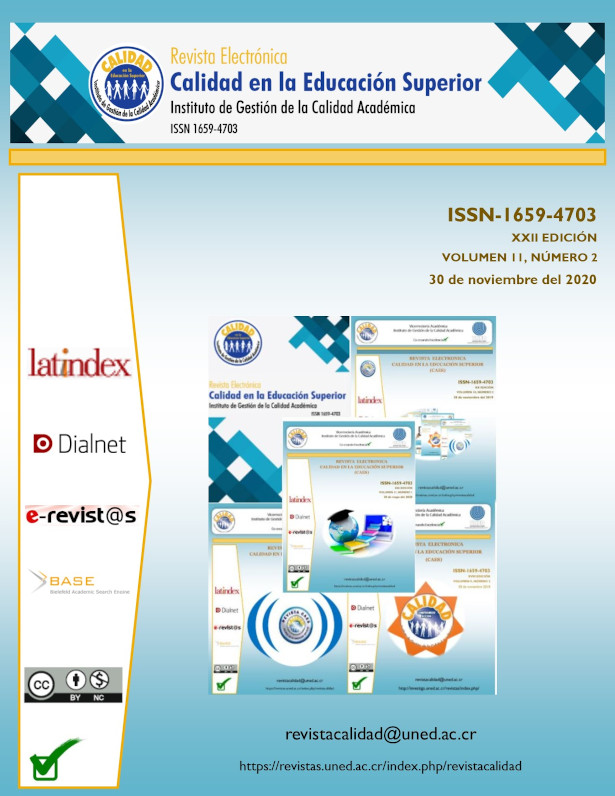Distance Education Model for the teaching of Agronomic Engineering in Costa Rica
DOI:
https://doi.org/10.22458/caes.v11i2.3329Keywords:
Agronomic Engineering, Agriculture, Chairs, University ManagementAbstract
Teaching in science is usually systematic, currently constructivist and, sometimes, to some extent pragmatic. To be more objective, models of science education are increasingly integrated, agronomy does not escape this condition. In Costa Rica, education in Agronomic Engineering or Agricultural Sciences is represented mostly in public universities, its model is "face-to-face" and is justified by the practical nature of learning, but its way of approaching the sector differs between them. The teaching of this discipline under the model of "Distance Education" also considers the theoretical foundations of Agronomy in the country but uses the different technological tools to achieve its learning objectives. The teacher gets to develop skills and abilities, as many as the same student who learns from him. As an educational model strategy, the Agronomic Engineering degree teaches with an expanded agriculture approach, which is competitive, equitable and sustainable, it is a more active participation; It also seeks the implementation of good educational practices, through Socratic methods that promote independent and critical thinking. The distance model in Agronomic Engineering does not mean learning only online, it also involves the presence and practice of the field, the teacher is a mediator of the learning and the student is responsible for their progress, in addition there is greater coordination and commitment in all academic activities during their professional training.
References
Kuhn, T. (1998). La estructura de las revoluciones científicas. Santafé de Bogotá: Fondeo de Cultura Económica, 319 p.
Parra, J. E. (2003). Competencias profesionales del Ingeniero Agrónomo. Agronomía Colombiana 21 (1-2): 7-16.
UNED. (2004). Modelo pedagógico de la UNED. CIDREB-UNED, San José Costa Rica
UNED. (2017). Rediseño del Plan de estudios en Ingeniería Agronómica. Flor Montero y otros. San José, Costa Rica.
Solórzano, N. y Zeledón, J.M. (2008). Manual de extensión agropecuaria: enfoque de agrocadenas. Ministerio de Agricultura y Ganadería de Costa Rica
Vélez, L. D. (2004). El paradigma científico de las ciencias agrarias: una reflexión. Revista Nacional de Agronomía – Medellín, 57(1): 2145-2159.
Downloads
Published
How to Cite
Issue
Section
License
Esta revista provee acceso libre inmediato a su contenido bajo el principio de que hacer disponible gratuitamente la investigación al publico, lo cual fomenta un mayor intercambio de conocimiento global.
